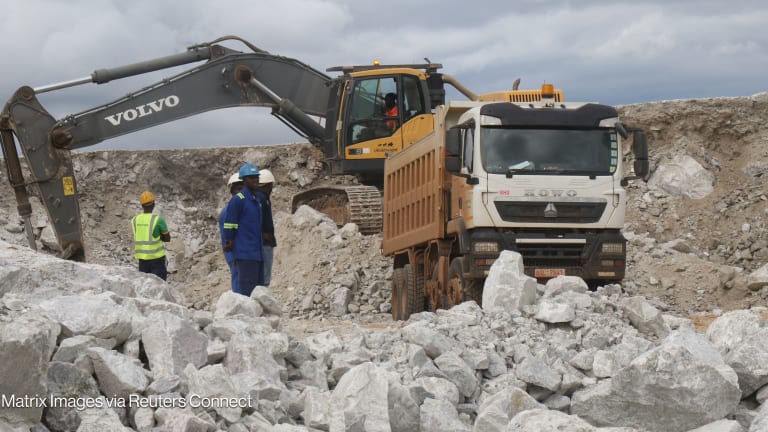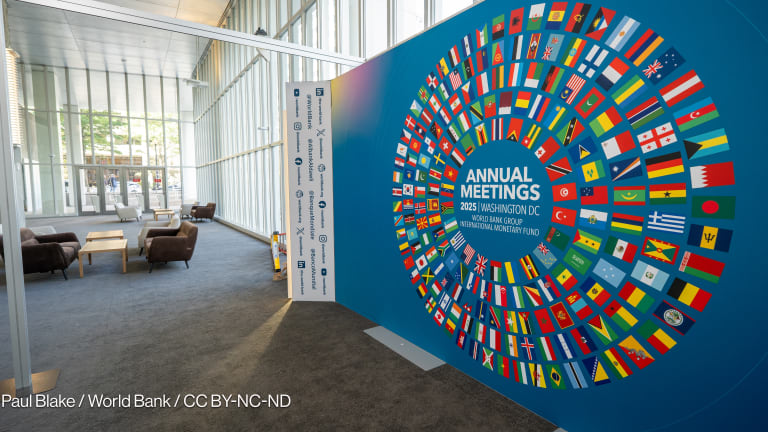
An ambitious new program to fight corruption by identifying who benefits from the proceeds of lucrative extractive industries is being launched by transparency campaigners.
Opening Extractives is a collaboration between Open Ownership and the Extractive Industries Transparency Initiative, both organizations campaigning for more accessible knowledge about private finances.
The campaigners hope that the project will ultimately reduce funds lost by countries to corruption and increase tax revenue, allowing more public finances to be spent on services such as health care and education.
An estimated $88.6 billion is lost from Africa alone each year, according to the United Nations Conference on Trade and Development. Nearly half of this, $40 billion, is associated with extractives industries, particularly the mining of precious metals and stones, according to UNCTAD. The agency also highlighted that annual international aid to the continent amounts to $48 billion.
Last year an investigation into hundreds of thousands of documents dubbed the Luanda Leaks found that shady contracts in Angola had funneled a fortune to billionaire Isabel dos Santos, the daughter of the country’s former president.
“Anywhere you find political control over the distribution of public funds or public assets, the absence of understanding who ultimately benefits from them leads to a massive corruption risk,” said Thom Townsend, executive director of Open Ownership. He added: “Wherever there is a proximity of political power and the ability to distribute funds and control where they end up, the absence of beneficial ownership data produces a significant risk.”
The project will focus on improving beneficial ownership information, bypassing “opaque structures” to identify who ultimately profits from a business, in extractive sectors such as oil and mining.
“The reason for the [focus on] extractives is this is where so much money is made illegally, it's a major source of corruption… it’s often politically exposed persons who have close connections who benefit from lots of contracts and as a consequence there is money lost to the public exchequer,” Mark Robinson, executive director of EITI told Devex.
“So this is particularly the case around major mining projects, significant oil contracts, that’s why it's so fundamental in this sector — scale,” he added.
Opening Extractives will provide long-term technical assistance to help governments of resource-rich nations enact reforms and use beneficial ownership data effectively. Lessons learned along the way will be communicated internationally to help other countries benefit from the process.
“Anywhere you find political control over the distribution of public funds or public assets, the absence of understanding who ultimately benefits from them leads to a massive corruption risk.”
— Thom Townsend, executive director, Open OwnershipThe problem it aims to fight is currently “rooted through contracts that benefit private individuals for self interest,” according to Robinson. “Ultimately by reducing the scope for corrupt practices you increase the resources available to the public exchequer, which in turn can be used to invest in health systems, or schools or clinics.”
The project is in its early days — the 8-10 countries it will focus on have not yet been selected — but its backers are optimistic that international momentum towards greater financial transparency is in their favor.
Robinson acknowledged there were likely to be obstacles to improving beneficial ownership transparency. “There’s resistance from those who don’t particularly want light thrown on these ownership structures, there’s resistance from in political office who themselves stand to benefit from these opaque structures,” he said.
Opening Extractives therefore requires countries “which are serious rather than giving it lip service,” Robinson said.




